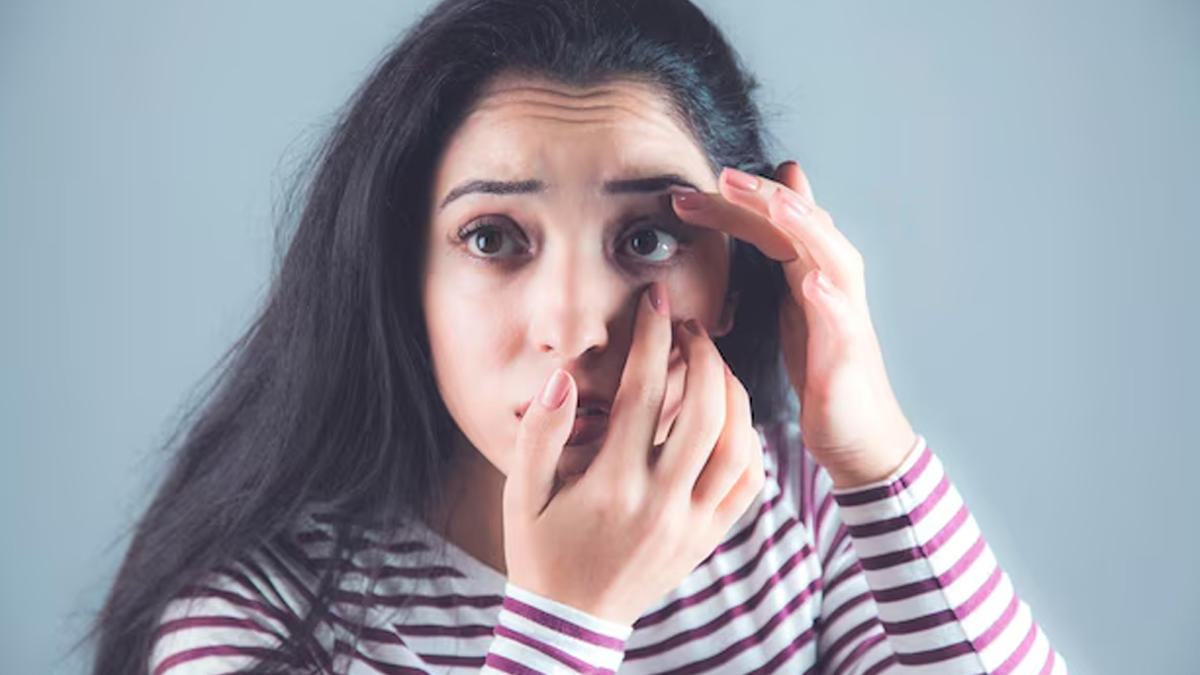
When it comes to blinking, each blink usually lasts between 100 and 400 milliseconds, with the average being around 200 milliseconds, which is just a fraction of a second. While there is no exact definition of excessive blinking, experts generally consider it concerning when someone blinks more than the average 14-17 times per minute, especially if it starts interfering with daily activities or vision.
Table of Content:-
Excessive blinking is said to be more common among children and should be addressed if it does not resolve on its own. However, it is also crucial to understand the causes behind it, so as to treat the condition effectively.
Also Read: In The Blink Of An Eye: Expert Explains What Happens In Such A Short Span
Common Causes Of Excessive Blinking

Speaking with the OnlyMyHealth team, Dr Prabhakar G V, Consultant- Cataract, Cornea, Lasik at Sankara Eye Hospital, Hyderabad, shares that certain neurologic conditions, including Tourette syndrome and Parkinson's disease, can present with spasms of eye muscles that can lead to excessive blinking.
According to a 2021 case report published in the journal Movement Disorders Clinical Practice, blinking is controlled by dopamine in the brain and can indicate certain health issues. Dopamine is a chemical messenger in the brain that controls movement, mood, and motivation.
Researchers suggested that while people with Parkinson’s disease often blink less, those with Huntington’s disease, Tourette’s syndrome, or Wilson’s disease may blink more. Additionally, blepharoclonus is a rare condition causing eyelid spasms when closing the eyes.
Dr Prabhakar adds that even stress, anxiety, side effects from medication, or an injury such as cornea scratches can cause excessive blinking.
Other common causes include:
Dry eye syndrome: People suffering from dry eye syndrome generally have a problem with reduced water production. Insufficient tear production leads to inflammation and excessive blinking.
Allergies: Reactions to dust pollen, pet fur, or dander allergens are responsible for allergies and can evoke vexatious blinking.
Eye strain: Excessive screen time often leads to eye strain, an uncomfortable condition that in turn leads to excessive blinking.
Foreign bodies: Those irritants and small dust particles entering the eye like a foreign body result in excessive blinking as a common defence mechanism.
Blepharitis: Blepharitis is the inflammation of the eyelid causing irritation, dryness, and crusting that can lead to increased blinking as the eye tries to lubricate itself and clear remaining debris.
Also Read: Blinking Eyes Frequently? Expert Explains Reason Tips For Treatment
How To Know If Excessive Blinking Is Stress

According to Dr Prabhakar, there are instances where a person’s state of being overly stressed can cause excessive blinking.
“Every human at some stage develops habits that include uncontrolled movements, especially during periods of extreme stress. Stress makes the nervous system overly active and decreases self-control, which is oftentimes shown via muscles and tics. If self-blinking is not being controlled, it can be a method for the nervous system to relieve this tension,” he explains.
The doctor advises relaxing and using calming devices, practising behavioural modification exercises, or medications in such situations.
When Excessive Screen Time Is The Problem
Too much screen time can cause excessive blinking. This is because when a person is focused on a screen for prolonged periods, they tend to blink less, which can lead to dry eyes. To make up for this dryness, the body blinks more to keep the eyes moist.
According to Dr Prabhakar, some of the factors that are to blame include blue light exposure, eyesight focus, and even poor lighting.
To reduce the effect, he recommends following the 20-20-20 rule, which involves resting your eyes every 20 minutes by staring at something 20 feet away for a minute. Artificial tears can also offer relief, he added.
Diagnosis And Treatment

Detailed eye review, medical history review, and even neurological assessments can be used to form a diagnosis related to excessive blinking.
Eye irritation, vision problems, neurological disorders, or tic-related conditions are the usual causes that doctors look for when examining a patient suffering from excessive blinking.
Treatments usually depend on the cause of the condition. Artificial tears and proper eye hygiene help in the case of dry eye syndrome or irritation. Antihistamines can be used for allergy-induced blinking, while taking screen breaks, practising the 20-20-20 exercise, and adjusting lights can reduce eye strain related to excessive blinking.
Dr Prabhakar concludes by suggesting that various relaxation techniques, stress management, and counselling can be used when stress and anxiety are the main reasons behind frequent blinking.
Also watch this video
How we keep this article up to date:
We work with experts and keep a close eye on the latest in health and wellness. Whenever there is a new research or helpful information, we update our articles with accurate and useful advice.
Current Version